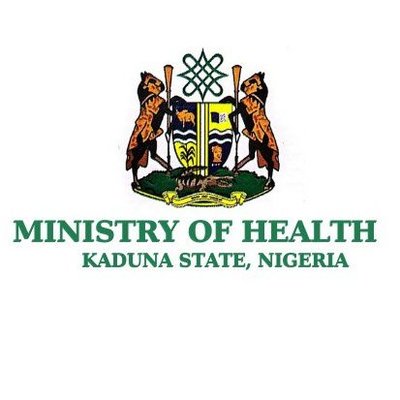Health
Expert seeks global effort to eliminate Parkinson’s disease
A Consultant Neurologist, Dr Agabi Osigwe, says a collective global efforts is needed to eliminate the Parkinson’s pandemic, now that the world is currently witnessing its start.
Osigwe, who works at the Lagos University Teaching Hospital (LUTH), made this assertions in an interview with the News Men on Tuesday in Lagos.
He spoke in commemoration of the World Parkinson’s Day celebrated annually on April 11 to bring attention to the medical condition.
Parkinson’s disease is a brain disorder that causes unintended or uncontrollable movements, such as shaking, stiffness and difficulty with balance and coordination.
The World Health Organisation (WHO) report of June 2022 stated that globally, disability and death due to the disease are increasing faster than for any other neurological disorder.
According to the report, the disease’s prevalence doubled in the past 25 years.
It also stated that global estimates in 2019 showed more than 8.5 million individuals with the disease, while estimates suggest that in 2019, it resulted in 5.8 million disability-adjusted life years.
The report also indicated an increase of 81 per cent since 2000 which caused 329 000 deaths and an increase of more than 100 per cent since 2000.
Osigwe told News Men that the disease could affect anyone, irrespective of age, gender, ethnicity or geographic location.
“All over the world, we estimate that more than 10 million people live with Parkinson’s.
“It is the fastest growing neurological disorder worldwide in terms of the numbers of people affected and the disability experienced on account of Parkinson’s.
“This number is expected to double by 2040. For example, in primary care, Parkinson’s is one of the top 10 neurological diseases encountered.
“In specialist care, it is the fourth major neurological disorder seen and sixth in Africa,” he said.
According to him, it affects the elderly, saying that up to 10 out of every 1000 people over the age of 65 are affected.
“Parkinson’s can affect younger people below the age of 50, and even below the age of 20, though, this is not common,” he said.
The expert said that Parkinson’s could be caused by a combination of inherited risk and environmental exposures.
He said: “The exact nature of these causes is what was unknown for a long time, but is becoming clearer with research.
“About five to 10 per cent of Parkinson’s is clearly inherited (passed down from parents to their children).
“For the vast majority, it’s the combined effect of the inherited risk and environmental exposures that is presumed to be the cause.
“For instance, there is mounting evidence for a role of exposure to certain pesticides used in farming, certain chemicals like trichloroethylene, fumes from blacksmithing (such as iron fumes), manganese and so forth.
“The importance of these lies in ensuring that the environment is protected from the harmful effects of such toxins to reduce exposure to them.”
Osigwe said currently, there were no cure for Parkinson’s disease, adding that all treatments focus on alleviating the symptoms of the disease and promoting the wellbeing of the patients.
“This includes giving medicines that help replace the deficient dopamine in the brain and medicines that also relieve other symptoms of the disease.
“Adjustments are made over the course of time to address any problem that may arise in the course of treatment,” he said.
Osigwe noted that a critical component of treating patients with Parkinson’s was physical therapy and exercise which should start early and be sustained for long.
He said that the treatment of Parkinson’s disease was a collaborative effort between the neurologist, overseeing the multidisciplinary team involved in the treatment, the patient as a participant in their own treatment and their family/caregivers.
Osigwe said, “the approach is ideal to ensure that there is synergy in the treatment and that the person with Parkinson’s gets all the support needed in order to have a better quality of life.”
Health
FG bans use of foreign syringes, needles in tertiary hospitals

The Federal Government has mandated all Chief Medical Directors (CMDs) and Medical Directors (MDs) of Federal Tertiary Hospitals to procure needles and syringes solely from NAFDAC-approved local manufacturers.
The new directive is contained in a circular addressed to all CMDs and MDs signed by the Minister of State for Health, Dr Tunji Alausa, on Friday.
The minister said that the directive was aimed at boosting domestic production and shielding the country’s manufacturing sector from the influx of foreign goods.
The circular also mandated NAFDAC to stop issuing licences for the importation of foreign manufactured needles and syringes.
Alausa said the health sector had dentified local pharmaceutical industries that produce needles and syringes that were in serious trouble because of the practice.
He also said that out of the nine local pharmaceutical companies that produced needles and syringes eight years ago, six have folded up due to the dumping of largely substandard goods into the market.
“Mr President has directed that this must stop. We all agreed to take the necessary steps to immediately remedy this sad situation.
“Pursuant to this, NAFDAC has been mandated to stop issuing licences for the importation of foreign manufactured needles and syringes.
“It is also to de-list companies involved in the importation of these products going forward,” he said.
Alausa said ”all our tertiary hospitals are hereby directed to procure needles and syringes for your hospital needs from only the NAFDAC-approved local manufacturers listed below are listed either directly or through any of their vendors.
“EL-Salmat Pharmaceuticals Company Ltd Block, Brand Name: Salmaject, HMA Medical Ltd., with brand Name: Deleject and Afrimedical Manufacturing and Supplies Ltd.”
He also listed some of the distributors of the listed companies in some states of the Federation for easy access to assist in making the procurement process easier in the various institutions.
Health
KDSG trains 180 Red Cross volunteers on Lassa Fever intervention


The Kaduna State Ministry of Health has begun a three-day training for 180 Red Cross volunteers on Lassa fever intervention.
The training, which is facilitated by the ministry and funded by the Red Cross, is meant to equip the volunteers selected from 5 LGAs in the state with necessary skills.
The volunteers were drawn from Zaria, Igabi, Kaduna South, Kaduna North and Chikun Divisions.
The State Epidemiologist, Dr Jeremiah Dikwu, said the volunteers were trained with the knowledge needed to massively intervene during cases of Lassa fever in the state.
He said that the intervention would include Risk Communication and Active Case Search, Psychological First Aid, Rodent Control and Hygiene Promotion for the next 3 months.
Dikwu said the training started with 30 volunteers on surveillance and would end with the training of 150 volunteers on Risk Communication and Community Engagement .
According to him, Lassa fever is a viral hemorrhagic fever transmitted by rats.
He added that Lassa fever has been known since the 1950s, but the virus was not identified until 1969, when two missionary nurses died from it in the town of Lassa in Nigeria.
Dikwu added that Lassa fever was caused by a single stranded RNA virus and disseminated systemic primary viral infection.
“The main feature of fatal illness is impaired or delayed cellular immunity leading to fulminant viraemia,” he said
The epidemiologist said that Lassa fever presented symptoms and signs indistinguishable from those of febrile illnesses such as malaria and other viral hemorrhagic fevers such as Ebola.
“It is difficult to diagnose clinically but should be suspected in patients with fever (e”38°C) not responding adequately to antimalarial and antibiotic drugs.
“The most useful clinical predictors of Lassa fever are fever, pharyngitis, retrosternal pain, and proteinuria for diagnosis; and fever, sore throat, and vomiting for outcome,” Dikwu said.
He said that Ribavirin and general support were needed.
“Ribavirin is almost twice as effective when given intravenously as when taken orally, and if given within six days of the start of illness it may reduce deaths by 90 percent.
“Dehydration, oedema, hypotension, and poor renal function are common; fluid replacement or the use of blood transfusion requires careful monitoring,” he said.
Dikwu said the volunteers would be carrying out Risk communication and Community engagement, Active Case Search, Psychological First Aid, Rodent Control and Hygiene Promotion
Health
Assembly passes Kano Pre-Marital Health Screening Bill


Kano State House of Assembly has passed a bill for a law to compel intending couples to undergo HIV, hepatitis and sickle cell anaemia screening before marriage.
The passage followed deliberations in the Committee of the Whole House during plenary session,
presided over by the Speaker, Ismail Falgore on Monday in Kano.
After deliberations, the lawmakers approved the 3rd reading of the bill, read by the Deputy Clerk, Alhaji Nasiru Magaji.
Shortly after passage of the bill, the Majority Leader of the house, Lawan Hussein (NNPP-Dala), stated that “any person
intending to marry shall first submit self for medical examinations.”
He said the bill was considered and passed after the 3rd reading, following various legislative processes.
The leader further said that the bill was passed because the state had been battling with different health issues, including
HIV because people go into marriages without medical screening.
He said that the bill, if signed into law, would save many lives and curb the spread of life-threatening diseases.
“The bill will safeguard the health of citizens by institutionalising pre-marital testing to check the spread of diseases
like hepatitis, HIV and sickle cell anaemia,” he added.
-
capital market2 years ago
Rt.briscoe, FBNH, Others halts negative performance of stock market
-
Finance3 months ago
Court orders Sen. Victor Umeh to repay N136m bank debt to AMCON
-



 Abuja Update2 months ago
Abuja Update2 months agoUNDP, FG partnership needed to achieve inclusion, equity- Minister
-
Abuja Update1 month ago
Banks drive stock market performance with N147bn gain
-



 Business2 weeks ago
Business2 weeks agoTingo Group unveils Tingo Electric, Tingo Cola drink at Lagos launch
-



 Health3 weeks ago
Health3 weeks agoCapacity training will reduce migration of health workers- NPHCDA
-
News4 months ago
Oil thieves sponsoring malicious media campaign against Navy – Spokesman
-



 Infotech1 month ago
Infotech1 month agoWorld Backup Day: NITDA urges Nigerians to ensure backup of data




